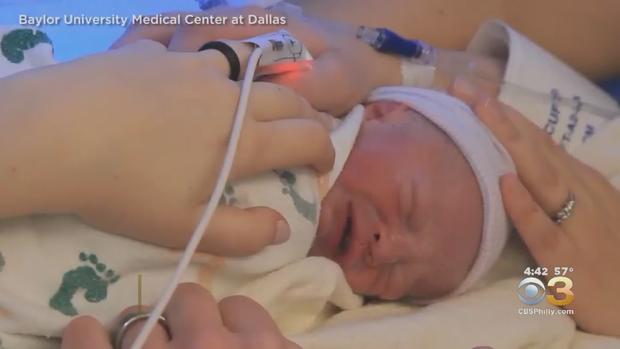University Of Pennsylvania Researchers Perform 2 Successful Uterus Transplants
PHILADELPHIA (CBS) -- Doctors at the University of Pennsylvania announced a major medical milestone on Thursday. Researchers have performed two successful uterus transplants as part of an investigative trial.
The ability to transplant a uterus provides new hope to women who cannot give birth.
Penn researchers are not able to reveal whether their two successful transplants resulted in live births yet.
Images of the first baby born to a mother with a transplanted uterus in the United States were released about two years ago by Baylor University Medical Center, where the baby was born.
Since then, four more babies have been delivered in the U.S. to women with transplanted wombs at Baylor and the Cleveland Clinic.
The University of Pennsylvania is also experimenting with uterus transplants, announcing Thursday that two have been successful.
Penn Dr. Kathleen O'Neill says these transplants could offer hope to women who can't have children due to uterine factor infertility.
"When I first met them I had to say, 'If you want to have a child, your options are to have a carrier or to adopt.' And now, we're at a point where we can say there's this new third option which is uterus transplant and you can actually carry a pregnancy," O'Neill said. "To be a part of the development of a new treatment in medicine is incredibly exciting and scary but I have learned so much."
Penn researchers are part of the U.S. Uterus Transplant Consortium.
The group was on Capitol Hill Thursday to brief Congress and raise awareness about this exciting development for women who can't give birth.
Penn says they have 330 potential recipients.
The uterus that's being transplanted can come from a living or deceased donor.
Penn says 70 living donors have volunteered to see if they may be a match.




